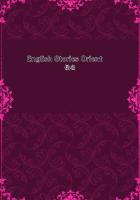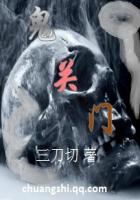It may roughly be characterized as the passage from the potentiality to its realization.That is potential which can either pass into a Form- for example, the potential statue- or else pass into actuality- such as the ability to walk: whenever progress is made towards the statue, this progress is Motion; and when the ability to walk is actualized in walking, this walking is itself Motion:
dancing is, similarly, the motion produced by the potential dancer taking his steps.
In the one type of Motion a new Form comes into existence created by the motion; the other constitutes, as it were, the pure Form of the potentiality, and leaves nothing behind it when once the motion has ceased.Accordingly, the view would not be unreasonable which, taking some Forms to be active, others inactive, regarded Motion as a dynamic Form in opposition to the other Forms which are static, and further as the cause of whatever new Form ensues upon it.To proceed to identify this bodily motion with life would however be unwarrantable; it must be considered as identical only in name with the motions of Intellect and Soul.
That Motion is a genus we may be all the more confident in virtue of the difficulty- the impossibility even- of confining it within a definition.
But how can it be a Form in cases where the motion leads to deterioration, or is purely passive? Motion, we may suggest, is like the heat of the sun causing some things to grow and withering others.In so far as Motion is a common property, it is identical in both conditions; its apparent difference is due to the objects moved.
Is, then, becoming ill identical with becoming well? As motions they are identical.In what respect, then, do they differ? In their substrates? or is there some other criterion?
This question may however be postponed until we come to consider alteration: at present we have to discover what is the constant element in every motion, for only on this basis can we establish the claim of Motion to be a genus.
Perhaps the one term covers many meanings; its claim to generic status would then correspond to that of Being.
As a solution of the problem we may suggest that motions conducing to the natural state or functioning in natural conditions should perhaps, as we have already asserted, be regarded as being in a sense Forms, while those whose direction is contrary to nature must be supposed to be assimilated to the results towards which they lead.
But what is the constant element in alteration, in growth and birth and their opposites, in local change? What is that which makes them all motions? Surely it is the fact that in every case the object is never in the same state before and after the motion, that it cannot remain still and in complete inactivity but, so long as the motion is present, is continually urged to take a new condition, never acquiescing in Identity but always courting Difference; deprived of Difference, Motion perishes.
Thus, Difference may be predicated of Motion, not merely in the sense that it arises and persists in a difference of conditions, but in the sense of being itself perpetual difference.It follows that Time, as being created by Motion, also entails perpetual difference:
Time is the measure of unceasing Motion, accompanying its course and, as it were, carried along its stream.
In short, the common basis of all Motion is the existence of a progression and an urge from potentiality and the potential to actuality and the actual: everything which has any kind of motion whatsoever derives this motion from a pre-existent potentiality within itself of activity or passivity.
23.The Motion which acts upon Sensible objects enters from without, and so shakes, drives, rouses and thrusts its participants that they may neither rest nor preserve their identity- and all to the end that they may be caught into that restlessness, that flustering excitability which is but an image of Life.
We must avoid identifying Motion with the objects moved: by walking we do not mean the feet but the activity springing from a potentiality in the feet.Since the potentiality is invisible, we see of necessity only the active feet- that is to say, not feet simply, as would be the case if they were at rest, but something besides feet, something invisible but indirectly seen as an accompaniment by the fact that we observe the feet to be in ever-changing positions and no longer at rest.We infer alteration, on the other hand, from the qualitative change in the thing altered.
Where, then, does Motion reside, when there is one thing that moves and another that passes from an inherent potentiality to actuality? In the mover? How then will the moved, the patient, participate in the motion? In the moved? Then why does not Motion remain in it, once having come? It would seem that Motion must neither be separated from the active principle nor allowed to reside in it; it must proceed from agent to patient without so inhering in the latter as to be severed from the former, passing from one to the other like a breath of wind.
Now, when the potentiality of Motion consists in an ability to walk, it may be imagined as thrusting a man forward and causing him to be continually adopting a different position; when it lies in the capacity to heat, it heats; when the potentiality takes hold of Matter and builds up the organism, we have growth; and when another potentiality demolishes the structure, the result is decay, that which has the potentiality of demolition experiencing the decay.Where the birth-giving principle is active, we find birth; where it is impotent and the power to destroy prevails, destruction takes place-not the destruction of what already exists, but that which intervenes upon the road to existence.
Health comes about in the same way- when the power which produces health is active and predominant; sickness is the result of the opposite power working in the opposite direction.

